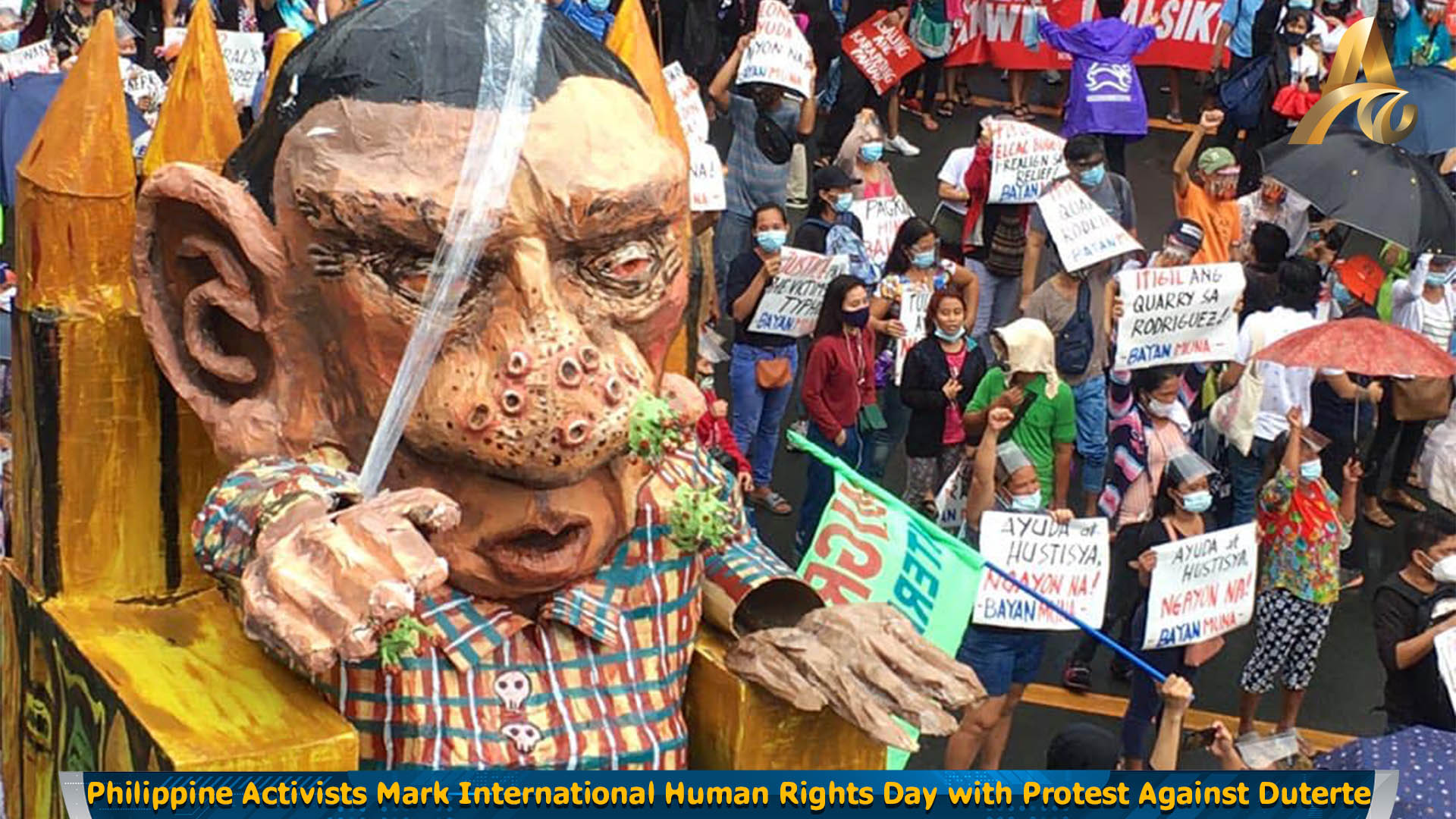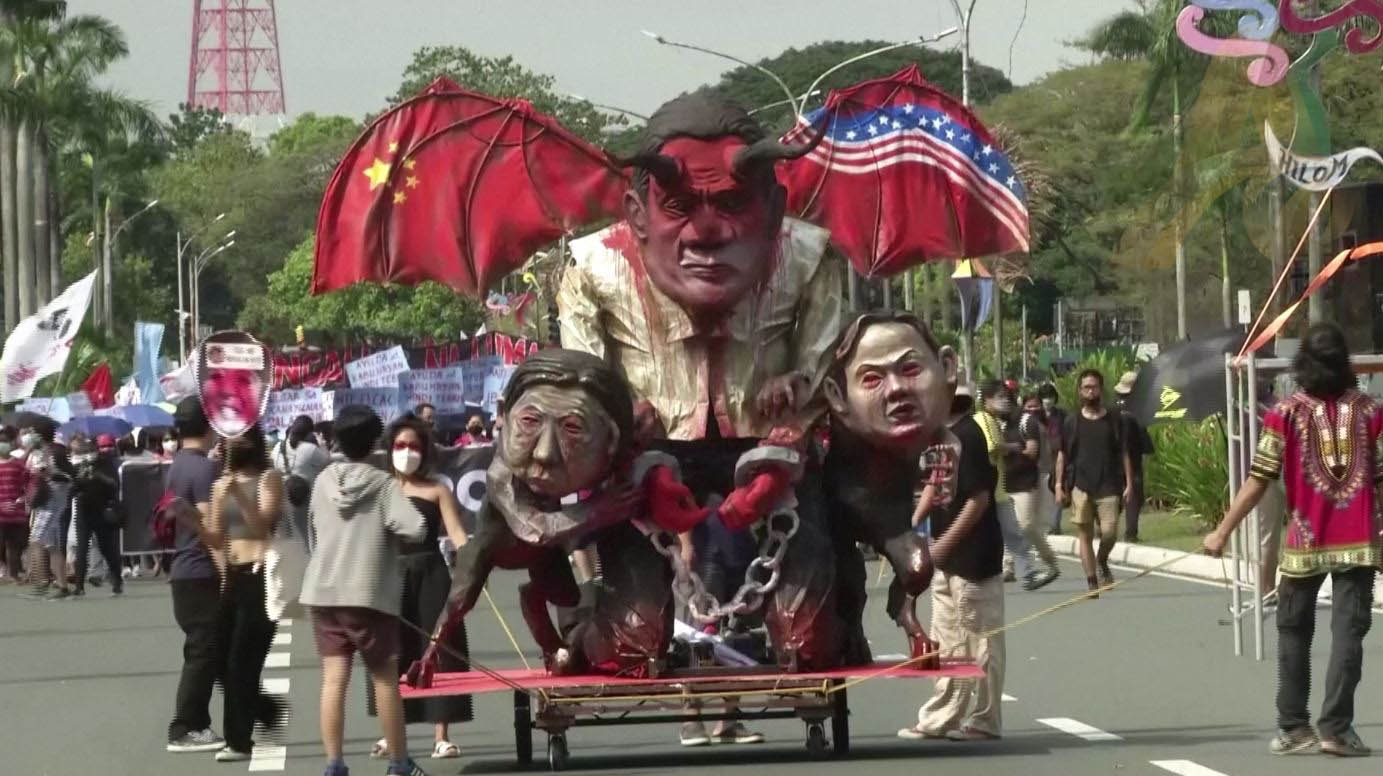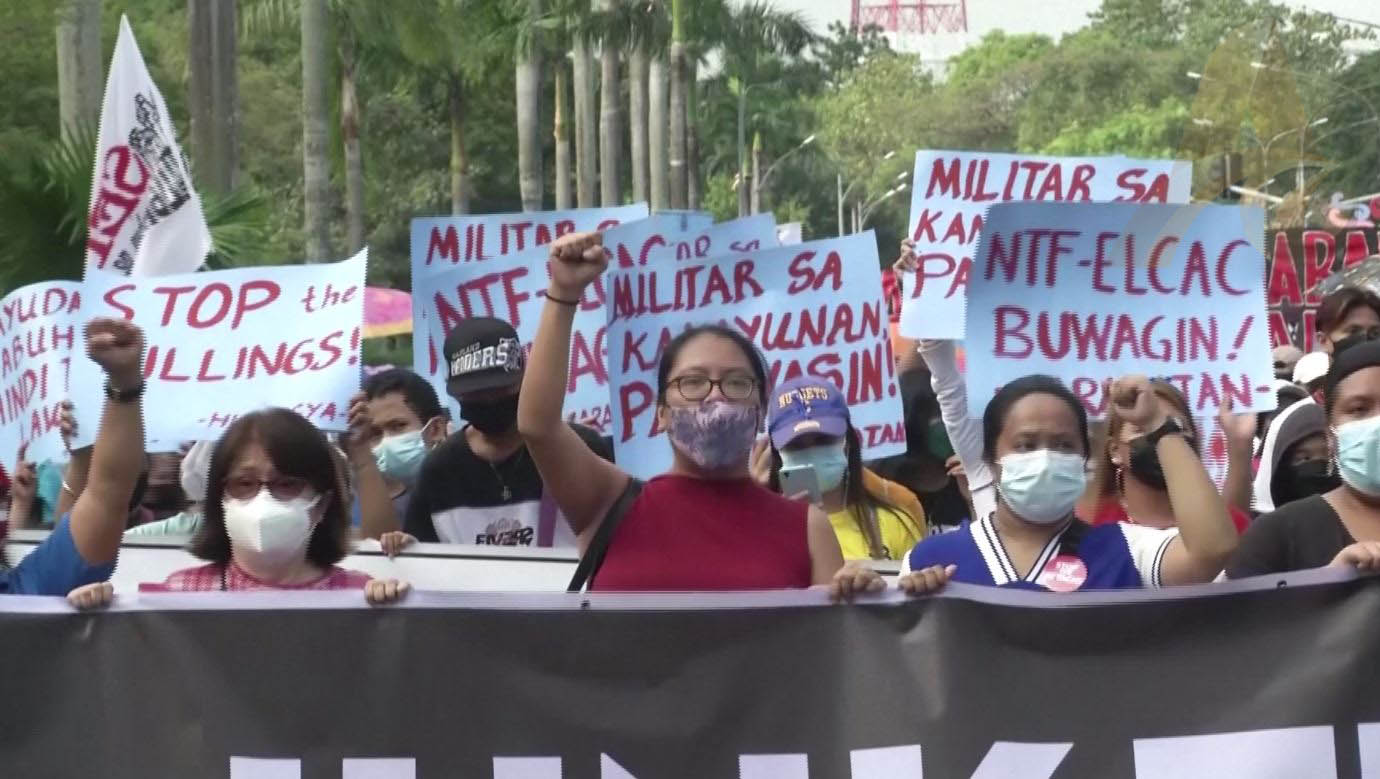INTERNATIONAL: In celebration of International Human Rights Day on Friday, civil society groups in the Philippines and abroad have staged activities and protests where Filipinos have expressed their support for human rights.
The country has witnessed a string of human rights abuses in the time of Duterte, more open compared to the time of the Marcos regime– from the war on drugs, attacks against critics and even the media, to the mismanaged pandemic response.
The feared anti-terror law was passed and implemented during Duterte’s administration.President Rodrigo Duterte signed the law on July 3, 2020 despite a strong outcry from groups that said it contained repressive provisions. Petitions have piled up at the Philippines' Supreme Court to overturn a new anti-terrorism law which could jail suspects without charge for weeks. The government says it needs the legislation to combat insurgencies and that it safeguards freedoms.
Human rights groups warn that the hardline Duterte administration could use the legislation to prosecute political opponents. The Philippine Catholic Church went so far as to compare the legislation to China's new national security law imposed on Hong Kong. The law took effect Saturday at a time when the authorities are battling the coronavirus and arresting left and right those caught breaching the lockdown. It follows widespread condemnation of the Duterte administration for harsh tactics against drug suspects and against government critics, as well as for undercutting civil liberties such as a free press, according to human rights advocates.
Days before the celebration of human rights’ day this year, the Supreme Court voided anti-terror law’s Section 4, which would have made dissent or protest a crime if it had an intent to cause harm. The decision of the Supreme Court has garnered mixed reactions from lawmakers and other civic groups.
These serves as the backdrop the Philippines would be celebrating the 73rd International Human Rights Day this Friday, with this year’s theme which inspired by the Universal Declaration of Human Rights’ first article: “that all human beings are born free and equal in dignity and rights.”
Here are some key takeaways from the debate around the Philippines' Anti-Terrorism Act of 2020.
The law greatly expands the definition of terrorism, which includes such broad offenses as "engaging in acts intended to endanger a person's life," intended to "damage public property" or "interfere with critical infrastructure," where the purpose is to intimidate the government.
The National Union of People's Lawyers has petitioned the Supreme Court to overturn the law on the grounds it is overly broad and essentially criminalizes intent. One new offense, inciting to commit terrorism, is particularly problematic, the rights advocates say. The text says inciting others through "speeches, writings, proclamations, emblems, banners, and other representations tending to the same end" could carry a punishment of 12 years in prison. "It chills freedom of expression. It chills free speech. It chills freedom of the press. It chills freedom of association," says Neri Colmenares, a leading human rights lawyer who is petitioning the Supreme Court.The law does state, however, that it is not intended to punish advocacy, protest, dissent, industrial action and strikes, so long as they don't create "a serious risk to public safety."
The Duterte government's poor human rights record has amplified apprehensions over the new anti-terrorism law. Duterte's drug war has killed at least 8,600 Filipinos since 2016, with "near-impunity," according to a United Nations report in June. But lawyer Colmenares argues that, for the Duterte administration, "terrorism is any form of dissent."
On December 10, 8:30 AM, Human Rights Defenders and Rise Up Families has led a human chain in front of the Quezon City Hall to collectively express their dissent towards the killings of innocent Filipinos due to Duterte’s drug war.
By 10 AM, a united mobilization for the International Day of Human Rights has taken place at the University Avenue, University of the Philippines Diliman to assert for the safe reopening of schools, academic freedom, press freedom, and human rights, among others. A mobilization entitled “Power to the people; Resist tyranny! Defend democracy” has taken place at Post Office Park, led by Anakbayan Metro-Baguio.
At 1 PM, BAYAN – Panay has led a mobilization at Iloilo Sunburst Park expressing their dissent towards red-tagging and community attacks, as well as commemorating the victims of the war on drugs.The Office of Vice-Chancellor for Academic Affairs of UP Diliman hold a virtual open mic event in celebration of International Human Rights Day via Facebook live. The Cultural Center of the Philippines Arthouse Cinema is currently holding a special human rights film screening featuring films that highlight human rights stories in the Asia Pacific with focus on digital rights, women leading protests, commuter mobility, and indigenous peoples. The film screening will be from December 4 to 12.
FEU Department of Communication’s Likhang Mulat Film Movements Festival 2021 will have its premiere night. Likhang Mulat serves as a platform that showcases critical and social advocacy media produced by the FEU Communication students. On Saturday, December 11, at 5 pm Manila Time, Filipino LGBT Europe is set to conduct Filipino Queer Forum: Creating a Safer and Inclusive Philippines. MASIPAG has launched an anthology of poems written by its farmers ahead of International Human Rights Day. This anthology focused on the problem of Rice Tarrification Law, agriculture, pandemic, shrinking democratic spaces, among others.
PHOTO: ACTIVISTS PROTESTING ON HUMAN RIGHTS DAY, ACTIVISTS MARCHING WHILE HOLDING BANNERS, ACTIVISTS DESTROYING EFFIGY, SOUNDBITES FROM REPRESENTATIVE OF HUMAN RIGHTS GROUP AND LAWYER
























